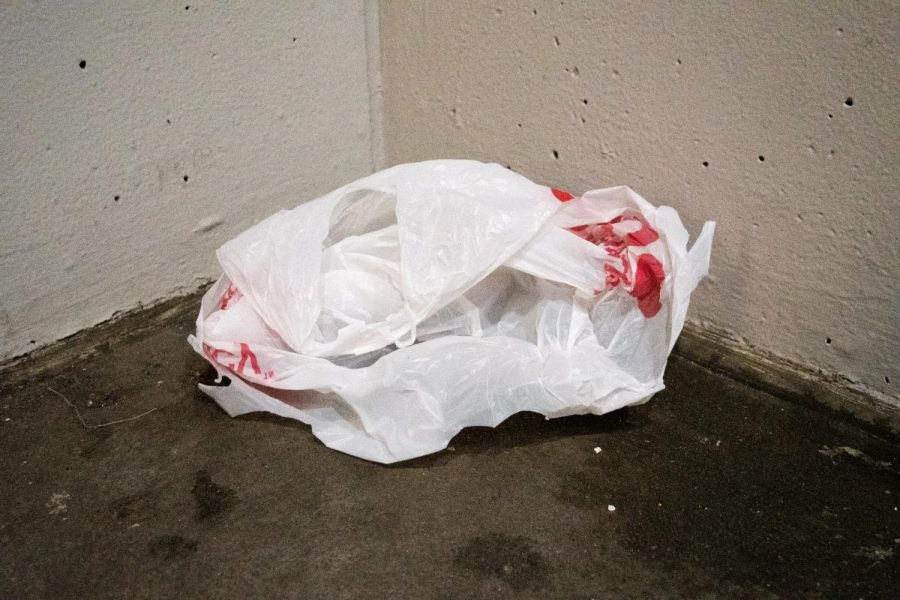#BYOBagNY is trending on Twitter as New York State gears up for the plastic bag ban, effective on March 1, 2020. But one NYU professor says the ban is not enough.
NYU Wagner Associate Professor Tatiana Homonoff expressed concern that the ban does not address all disposable bags, like paper ones. The Bag Waste Reduction law, first proposed by Governor Andrew Cuomo in 2018, introduces several measures regarding plastic bags but has more lenient policies on other disposable bags.
“This policy allows individual New York counties to decide whether or not they want to couple that plastic bag ban with a fee on other types of disposable bags,” Homonoff told WSN. “New York City is one of the few counties in New York state that decided to do that.”
While Homonoff is a proponent of New York City’s policies in regard to plastic waste, she criticized state policy.
The production of paper bags has a higher global warming potential and requires more water and energy than the production of plastic bags. Homonoff believes combining the ban on thin plastic bags with a fee on paper bags might bear better consequences.
“My research and research of other people working in the area suggests that it is an incredibly effective policy that the use of hybrid bans that is a plastic bag ban coupled with a paper bag fee lead to decreases in disposable bag use by 30-40%,” Homonoff said. “That is almost cutting disposable bag use in half.”
To curb plastic bag use, the law introduces new measures including banning the distribution of plastic bags by anyone required to collect New York State issued sales tax, plastic bag manufacturers and consumers; requiring stores covered under the NYS Plastic Bag Reduction, Reuse and Recycling Act to collect plastic bags and other film plastics for recycling; and authorizing cities and counties to adopt a five-cent paper carry-out bag reduction fee.
Exemptions have been made for bags used to carry prescription drugs and the production of bags for bulk items. The law also does not apply to beneficiaries of the Supplemental Nutrition Assistance Program and Women, Infants and Children, a federal program that provides nutrition grants.
In 2017 alone, the US generated 35.4 million tons of plastic, only 3 million tons of which was recycled — less than 9%. New York State, where over 23 billion plastic bags are typically used yearly, will be joining California, Connecticut, Delaware, Hawaii, Maine, Oregon and Vermont in this effort to reduce plastic waste.
Professor Homonoff argues that the key to making these policies effective is to eliminate any substitutes to plastic bags that pose a hazard to the environment.
“If consumers are indifferent to taking a thin plastic bag or a thick plastic bag or a thin plastic bag versus a paper bag, if you only regulate thin plastic bags, they are just going to switch over to using the other type of disposable bag,” she said.
Liberal Studies first-year Lucy Lee is from California — one of the first states to institute a plastic bag ban in 2016. She believes that the new law has potential to convince consumers about the importance of such policies.
“This way, unnecessary plastic bags are eliminated and the five-cent fee can encourage using reusable bags,” Lee said. “It’s something that’s kind of annoying to get used to, but after time I think everyone will appreciate it.”
Homonoff said New York City’s combination policy can be expected to yield favorable outcomes because it includes a small financial incentive to change consumer behavior.
“My research shows that these small changes do actually lead to very large decreases in disposable bag use,” she said. “That suggests that there are a lot of people who are on the margin of using a reusable bag instead of a disposable bag so all you really need is this small nudge to encourage them to change their behavior.”
CAS senior Anthony Scelza agrees with Homonoff that the current policy might be insufficient to combat the issue at stake.
“I don’t agree with the ban — it doesn’t solve the problem, which is waste reduction,” Scelza said. “They substituted one problem for another.”
Partnering with Chartwells, NYU’s catering provider, the university attempted to create a more sustainable on-campus dining experience with a program called NYU Eats.
The program incorporates composting, data collection to reduce dining hall waste, seasonal menu options and sustainable partnerships — including donating excess food to Two Birds One Stone an NYU organization which distributes it to local soup kitchens — into NYU’s dining culture.
This January, NYU ceased its purchase of single-use water bottles in a reach toward sustainability. Assistant Vice President for Sustainability Cecil Scheib told NYU students that this could eliminate nearly 250,000 plastic water bottles from NYU’s annual waste.
Despite the university’s proclaimed commitment to waste minimization, NYU’s vending machines still offer plastic water bottles.
CAS first-year Emily Yang commends steps taken by NYU to achieve its sustainability goal but is optimistic the university will take greater action.
“There is going to be an environmental effect with any single-use item so it’s difficult to achieve that absolute zero-footprint ideal,” she said. “I think the steps NYU is taking towards sustainability is significant as is, although it could certainly advance further of course, and we are probably going to continue to transition into the future as well.”
Correction, March 2: a previous version of this article misstated the sustainability program of NYU Eats. The article has been updated and WSN regrets the error.
Email Aarushi Sharma at [email protected].


























































































































































